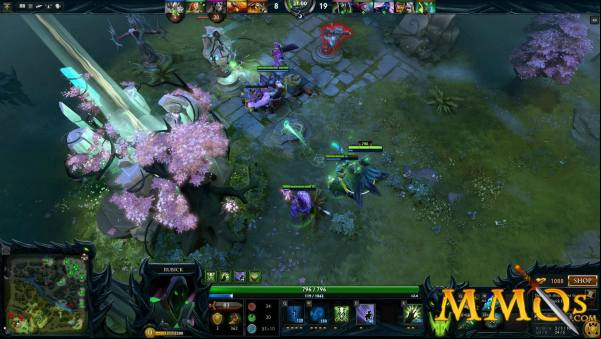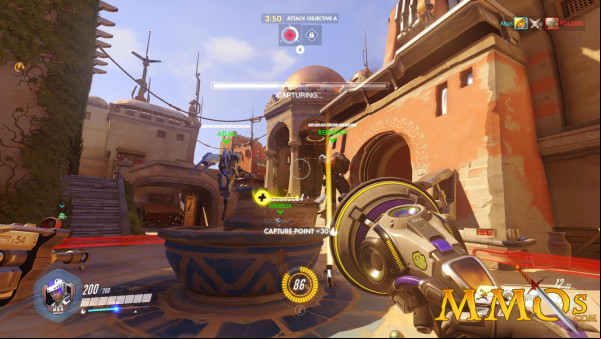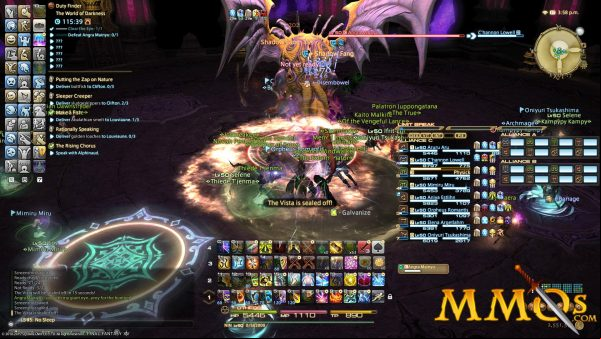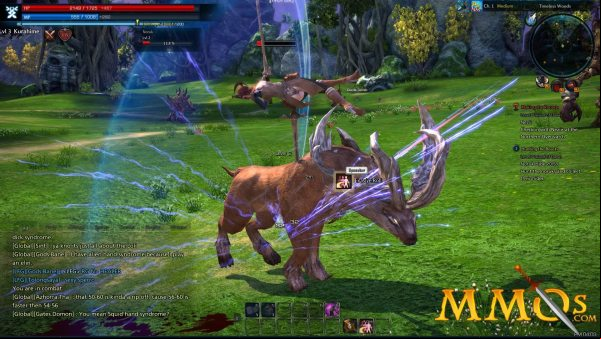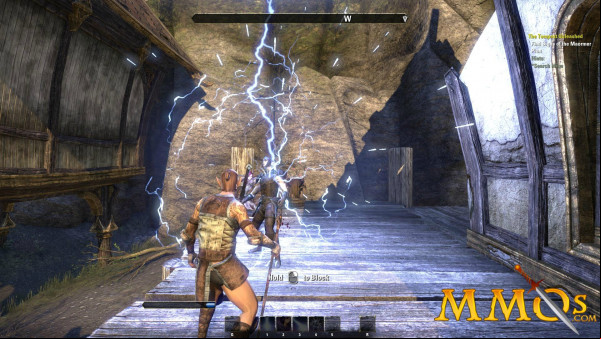The Struggle of Introducing Friends to a New MMORPG

As a teenager growing up surrounded by video games I always looked forward to the days where the three other controller ports on my N64 and Dreamcast would see some use. The occasional weekend would roll around where my friends and I gathered to play some Goldeneye and Chu Chu Rocket together, but no matter much I loved gaming with friends it didn’t happen often enough.
These days gaming with your friends isn’t restricted to location or even time thanks to high-speed internet connections. Throughout my gaming adventures I’ve met people from all across the world and despite the distance and time difference between us we can still enjoy a game together. The internet has helped to bridge the gap that we inevitably create between our friends and family as we move on in life, but one issue still remains:
It’s damned hard to get them to play an MMORPG with me!
With free-to-play games dominating the MMO market gamers have plenty of titles to dive into that won’t cost them anything to try out, but the huge selection raises a problem for groups of friends: what do you play? Everyone has different tastes. Some of us enjoy a good MOBA, others like FPS, and some prefer an RPG. Some prefer to try a game before investing money into it, and others like the peace of mind knowing they paid for a game to (hopefully) receive a better experience. Whatever your interests or budget there’s bound to be a game that fits your preferences.
For many gamers jumping between different genres is completely natural and it broadens the range of potential games they’re willing to try. Casual gamers also have an easier time breaking into a new genre thanks to games like Overwatch—the variety of playable characters helps to accommodate players of all skill levels and makes it extremely easy to pick up and play with friends regardless of FPS experience.
Dota 2 that require zero time investment before you can play with your friends it’s hard to justify investing into an MMORPG.
Leveling is one of the common time sinks in an MMORPG and it’s usually a linear and group unfriendly experience. You pick up a quest, it leads into another, and it continues until you decide to stop or reach max level. If you level in a group, everyone needs to start questing together at the same point and then end at the same point. If you don’t you’ll be waiting around for each other until you’re on the same quest. Exploring dungeons while leveling can also be frustrating if you don’t keep within the same level range. Dungeons are usually restricted by level and if you’re not within the expected range you won’t be able to enter.
FFXIV and Rift have similar solutions to the issues surrounding low-level group play. Both games have a de-leveling feature that reduces character stats to an appropriate level for dungeons and quests, making it incredibly easy to experience content with low-level friends while maintaining a sense of challenge. Both games also have their own form of public quest: repeatable events that happen randomly throughout the game world. Public quests reduce the need for traditional linear questing, allowing players to tackle content with their friends at any time instead of waiting to maintain the same quest progress.
Fortunately, leveling isn’t the only activity in an MMORPG. Once you that hurdle there’s usually more group content waiting to be explored.
For endgame content most MMORPGs require you to form parties with other classes that compliment your own. Proper team compositions are important to the success of a dungeon or raid group, and having the right mix of roles will make things easier in the long run. A lot of MMORPGs stick to the tried-and-tested holy trinity design. You have DPS, a tank, and a healer. Having multiple tanks or healers is generally not a good idea unless you plan to start raiding or if the game s it. For example, TERA’s two healing classes, the Mystic and Priest, compliment each other well and it’s not uncommon to see them both in a dungeon group. On the other hand, having more than a single tank can work in TERA but you’d have a much easier time if you replaced one of them with a DPS class.
Deciding what classes you and your friends want to play beforehand can help make your dungeon groups more successful later on, but there’s bound to be some conflict between people that want to play. If your group has several tanks or healers, then you might need to exclude them or rotate between friends just to form workable groups.
Luckily, not every MMORPG pigeon-holes players into a role depending on their class. In Blade and Soul there’s no clearly defined role for each class. Unlike other games where a tank is expected to take damage for a healer to restore, tanking in Blade and Soul is just a matter of holding aggro and avoiding boss attacks. There’s also no healer—everyone is expected to mitigate damage by their own means.
After deciding on your classes, leveling to the cap, and gearing your characters, the usual MMO grind begins. Daily quests, dungeon runs, professions, and raiding all require a fair bit of time. Dungeons can take five minutes, if it’s relatively short and you’ve done it before, or over an hour if your group is clearing it for the first time. Raiding can also take several hours per session depending on how serious you and your friends are. Challenging content usually requires a scheduled date and time especially if you’re required to communicate and work together, but not everyone can reserve several hours on a specific day for gaming. To make matters worse every MMORPG has varying group sizes that might force you to exclude friends just to fit within the limitations.
MMORPG design can be restrictive when you want to play with friends. Thankfully, some developers are already well aware of the issues. Zenimax, the studio behind The Elder Scrolls Online, recently announced at E3 they would be removing content barriers with their “One Tamriel” update, allowing players to experience everything the game has to offer without level restrictions.
In the future I hope to see more MMORPGs adopting a similar design philosophy to allow friends to play with each other without level and class restrictions. Introducing friends to a new game can be tough, but until there’s better for it we’ll just have to try our best to ease our friends into the addicting nature of an MMORPG.
